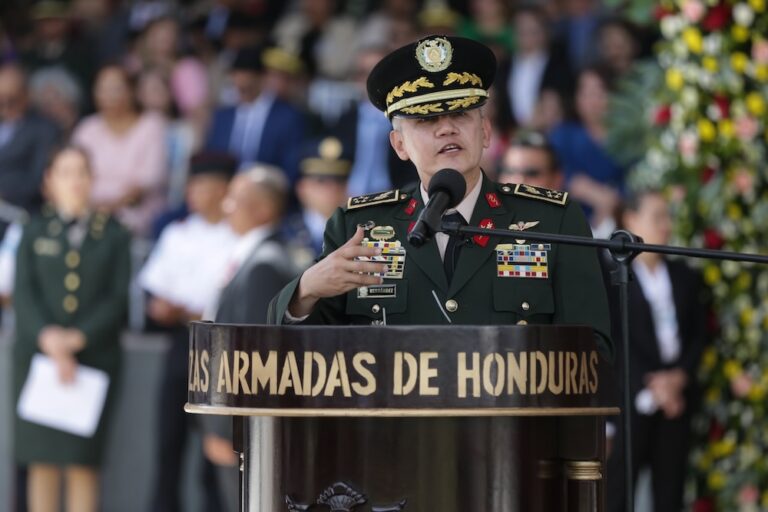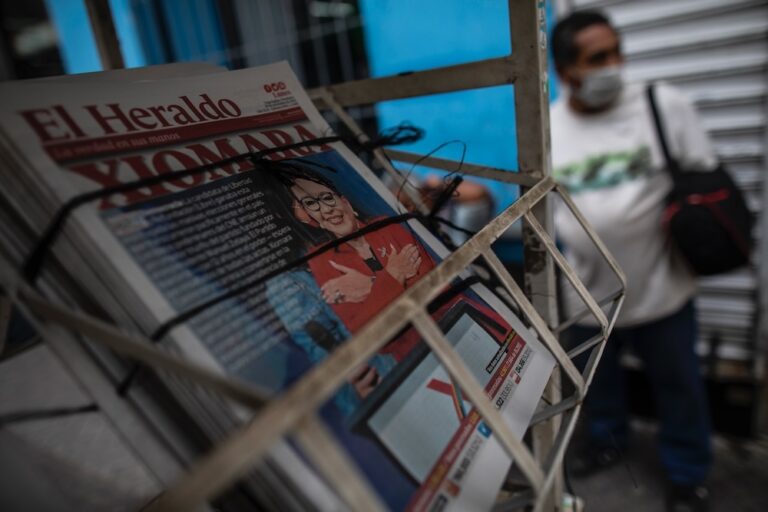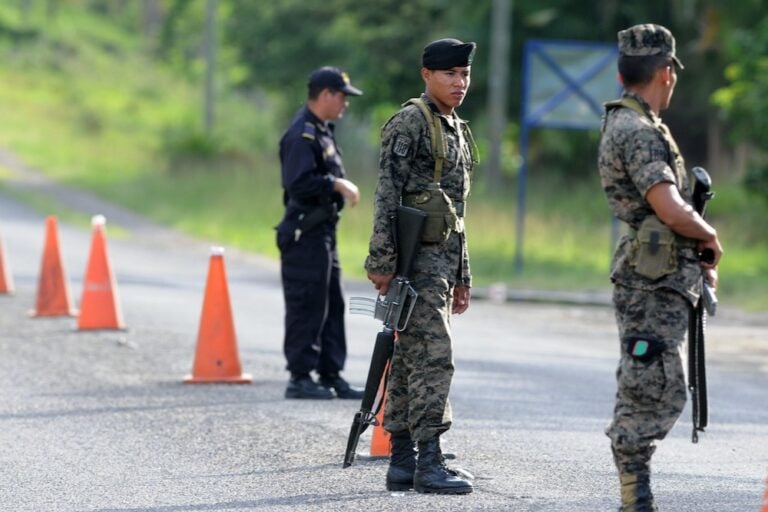(PROBIDAD/IFEX) – The following is an abridged version of a 3 December 2007 PROBIDAD press release: UN Special Rapporteur concerned about deterioration of freedom of expression in Honduras Tegucigalpa – At the end of his first official visit to Honduras, the United Nations’ (UN) Special Rapporteur on Freedom of Expression, Ambeyi Ligabo, expressed “great concern” […]
(PROBIDAD/IFEX) – The following is an abridged version of a 3 December 2007 PROBIDAD press release:
UN Special Rapporteur concerned about deterioration of freedom of expression in Honduras
Tegucigalpa – At the end of his first official visit to Honduras, the United Nations’ (UN) Special Rapporteur on Freedom of Expression, Ambeyi Ligabo, expressed “great concern” over the state of press freedom in the country.
The rapporteur recalled that in the early 1980s the country had experienced a dramatic deterioration in the human rights situation. He added that the Honduran people’s patience was once again being put to the test since the current government had come into power, particularly in the last three months.
Ligabo categorically condemned the murder of journalist Carlos Salgado and the fact that reporters Dagoberto Rodríguez and Geovanny García were obliged to leave the country out of concern for their safety.
During his visit to Honduras from 26 to 30 November 2007, the rapporteur met with journalists, media owners, members of the public and government officials. During a press conference at the end of his stay, he presented some preliminary findings on the four main obstacles to freedom of opinion and expression: journalists’ safety, a prevailing climate of fear, impunity and the slowness of legislative reforms to bring the country up to international human rights standards.
According to Ligabo, freedom of expression does not appear to be a priority for the government and not enough is being done to address the magnitude of the problem.
Ligabo warned that organised crime is expanding in Honduras, may have ties to economically powerful groups and is very probably operating with the collaboration of several sectors of the police force.
The rapporteur called for representatives of civil society, the government, the judiciary, the police and media outlets to work together to seek solutions to these problems. He also stressed the need for amendments to the legal system so that offences against an individual’s “honour” would no longer be considered a crime (i.e. punishable by incarceration), but rather a civil offence, to be dealt with by civil courts under the Civil Code.
He condemned as unethical the direct or indirect censorship practiced by some government authorities through the use of payments to certain journalists or the discriminatory awarding of government advertising contracts to media outlets.
Ligabo said that he approached the Honduran government five times about the marginalisation of indigenous peoples, ethnic minorities and other minority groups, resulting from the fact that these groups do not have access to their own media outlets.
The rapporteur welcomed the passing of the Transparency and Access to Information Law, while at the same pointing out some of its limitations. He will be presenting a more extensive report of his findings on the law and on freedom of expression in general to the UN Human Rights Council.
Ligabo visited Honduras at the invitation of the government. President Manuel Zelaya Rosales was criticised in the media, however, for not meeting with Ligabo during his first visit to the country.
This alert was prepared by PROBIDAD with information provided by the Committee for Free Expression (Comité por la Libre Expresión, C-Libre).


